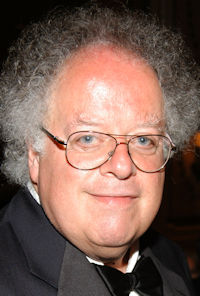Parsifal

| James Levine | |||||
| New York Metropolitan Opera Chorus and Orchestra | ||||||
Date/Location
Recording Type
|
| Amfortas | Simon Estes |
| Titurel | Ara Berberian |
| Gurnemanz | Hans Sotin |
| Parsifal | Timothy Jenkins |
| Klingsor | Donald McIntyre |
| Kundry | Tatiana Troyanos |
| Gralsritter | Mark W. Baker |
| James Courtney |
FIRST ‘PARSIFAL’ OF THE SEASON AT THE MET
NO one has ever described the contradictory genius of Richard Wagner more clearly than Thomas Mann, who late in life summed up his love of Wagner’s music as a ”love devoid of belief.” Mann’s description of the characters who inhabit ”Parsifal” as ”an assemblage of extreme and repellent oddities” is, if anything, an understatement. The magician Klingsor, who emasculates himself in a vain effort to gain entry into an order of celibate knights, is only the most obviously crazed member of a crew whose sick misadventures we are expected to take with the deepest seriousness. And yet, ”Parsifal” somehow emerges from this spiritual and psychological miasma not as gruesome nonsense but, thanks largely to its transfixing music, as a mythic drama with characters whose counterparts may be recognized all around us today in both the religious and secular worlds.
Take it or leave it – and even some otherwise devoted Wagnerites have always found the composer’s final opera too musically oppressive and too philosophically murky to bear -”Parsifal” is a thing of inexhaustible mystery and hypnotic beauty. The Metropolitan Opera’s evocative 16-year-old production, by Nathaniel Merrill and Robert O’Hearn, brings out those appealing qualities without distorting the work in any way, a phenomenon deserving of mention in the current operatic climate. For the first performance of the season, on Monday evening, James Levine had the orchestra playing with remarkable finesse, consistency and concentration throughout a five-hour span. Mr. Levine has been refining his ideas about ”Parsifal” for some years and has reached the point, which should be every interpreter’s goal, where the music seems to play itself, unfolding as inevitably as time.
The cast, though largely familiar in this production from previous seasons, brought on a sonorous-voiced, physically impressive Gurnemanz in Hans Sotin. Gurnemanz, a character easy to underestimate, must dominate the long opening scene vocally and sustain the mood of the Good Friday Spell. Mr. Sotin succeeded in both regards. Another newcomer to his role, Donald McIntyre, made a somewhat less gripping Klingsor than his predecessor, Franz Mazura, but certainly performed up to the standard of a generally satisfactory cast. Mark Baker fitted in well as the First Knight and so did Dawn Upshaw as a Flower Maiden.
The Parsifal of Timothy Jenkins, clear and unforced of voice most of the time, strained and turned thin when the music called for high, moderately loud tones. In physique, Mr. Jenkins resembles the burly, bearded tenors of an earlier operatic age, which gives him an undeniable stage presence but seriously inhibits his maneuverability. This was most evident in the production’s least persuasive scene, which plays out the Good Friday Spell on a ridiculously constricted half-moon that makes every move an adventure.
Among other elements making up the night’s success must be counted Simon Estes’s thoughtfully explored and satisfactorily sung Amfortas, though one still wishes his wig were more credible. Ara Berberian did nicely enough as the offstage voice of Titurel, and Tatiana Troyanos, though occasionally hard-pressed vocally, was a vivid, fearfully unstable Kundry. She might have been convincing even in the dubious scene where Kundry dries Parsifal’s feet with her hair if the holy fool’s gown had not been so long that she seemed to have difficulty locating them.
More so than any other Wagner opera, however, ”Parsifal” locates the source of dramatic expression not onstage but in the orchestra. Perhaps this is why Mr. Levine, who takes justifiable pride in having built the Metropolitan orchestra to its present state of excellence, continues year after year to give us such impressive ”Parsifals.” His current edition may be his best yet. Leaving this performance, one remembers for hours the solemn tread of the prelude and the Hall of the Holy Grail scenes, where the music’s hypnotic effect is visually recreated by the swaying procession of mournful knights.
DONAL HENAHAN | April 8, 1987



